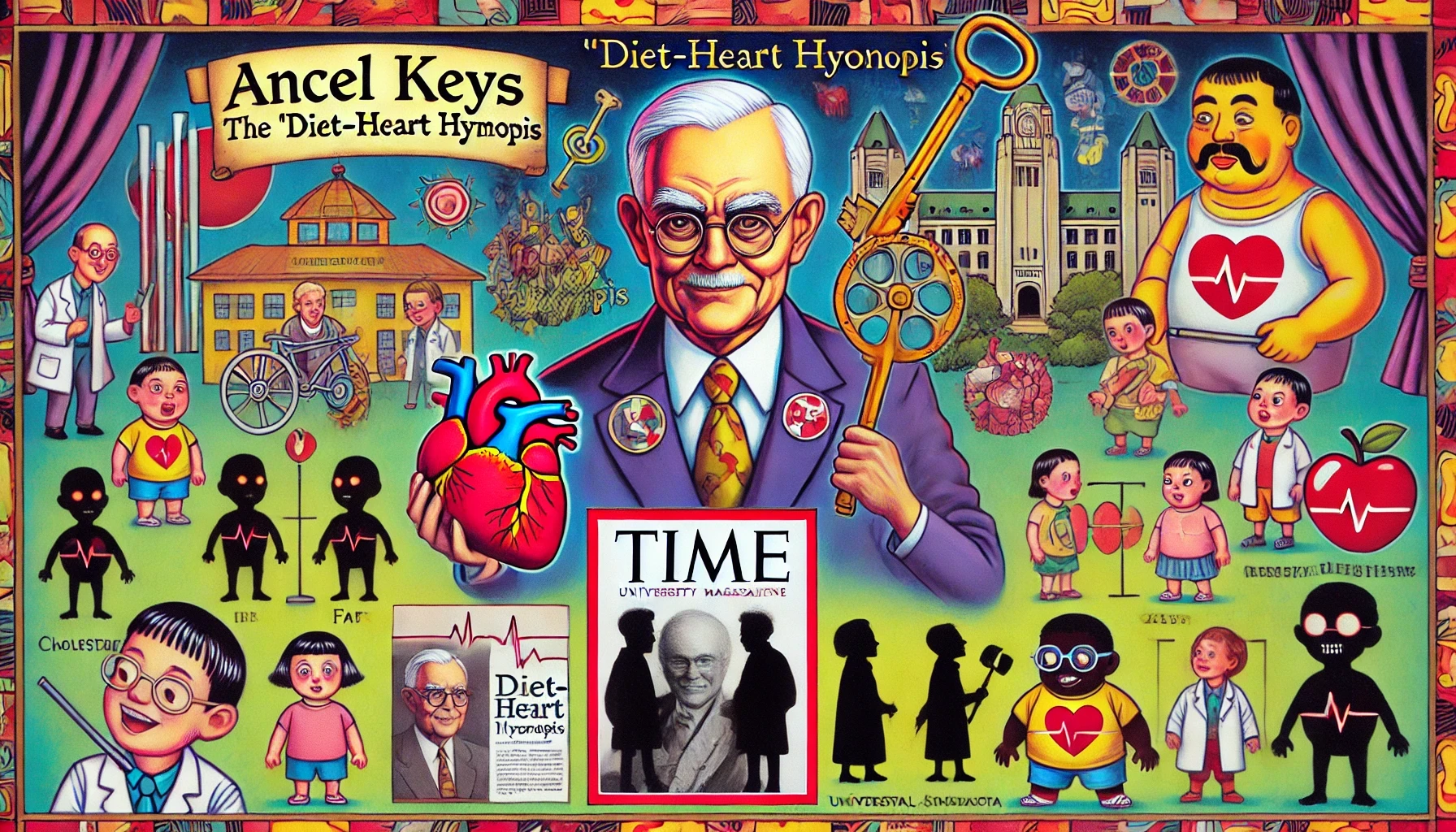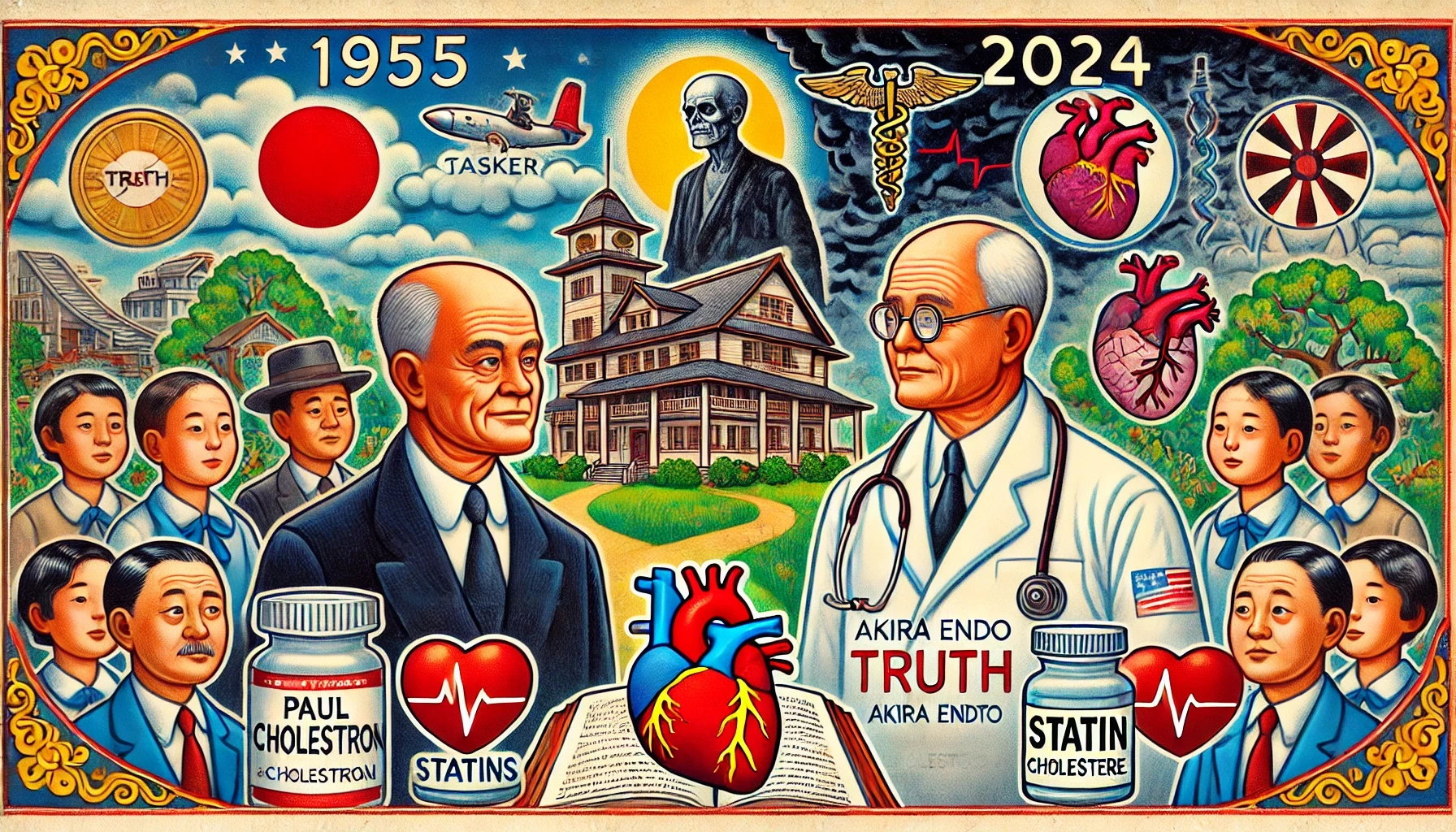ZENPTY.
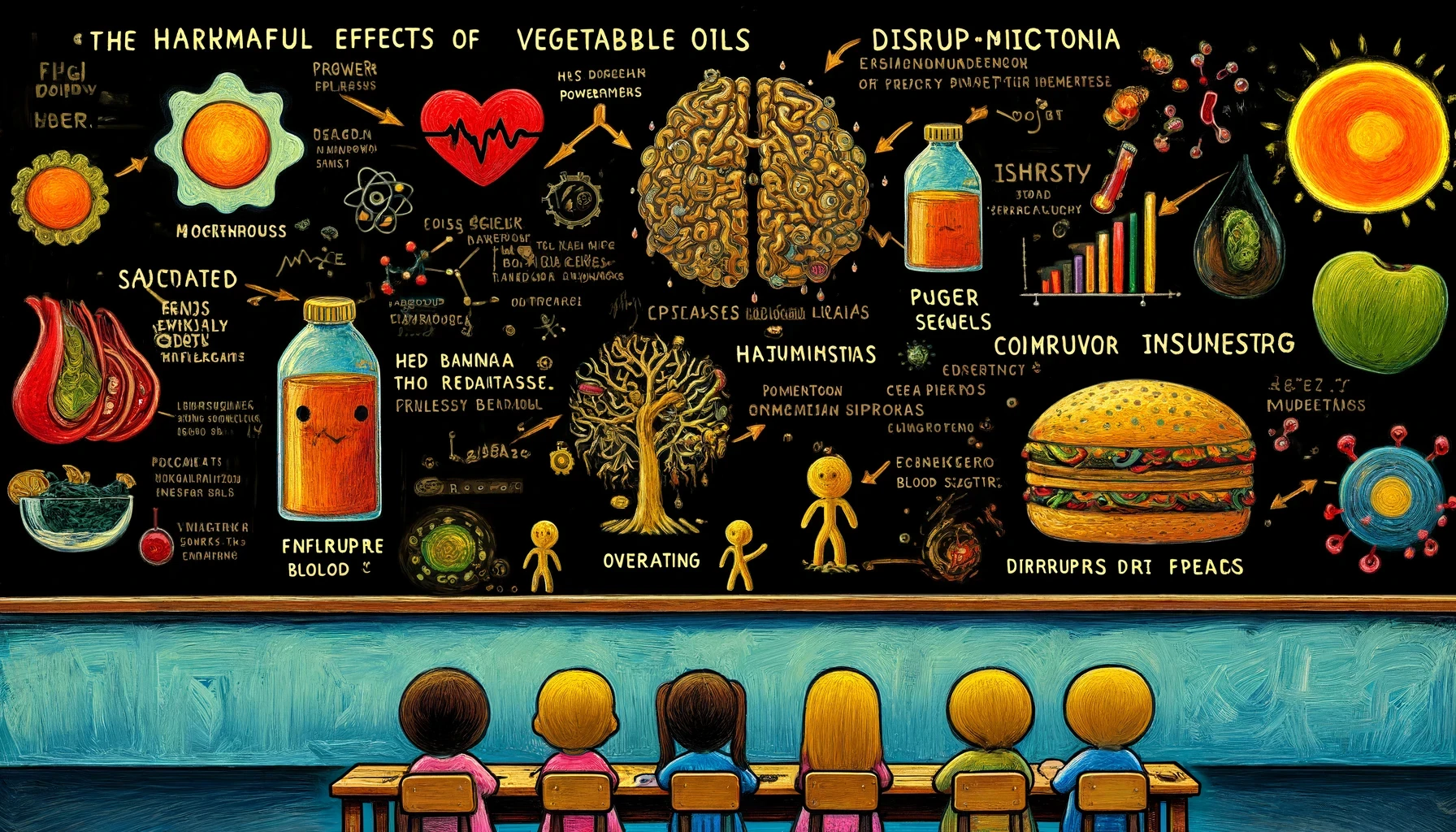
Going Against the Grain: Exposing the Harmful Effects of Vegetable Oils on Your Body
May 20, 2024
Healthy eating is such a hot topic, isn't it? Everyone seems to have their own take on it. Some folks might even argue, "Well, my uncle smoked like a chimney and lived to be 90!" or "I'm healthier than my pals because I'm sipping on diet soda." But let's face it, most of us can agree (I hope) that chowing down on excessive fast food and sugar isn't exactly a recipe for good health.
So, when I dine out, I steer clear of those fast-food joints and opt for local spots that serve up plenty of veggies and high-quality meat, like the ones I've shared here and here. Now, I'll admit, I do indulge in the occasional treat, like a chai or a croffle, but you won't catch me at an all-you-can-eat donut buffet. And when I do indulge in dishes like tempura and tonkatsu, I make sure they're cooked up in healthy plant-based oils, like rapeseed and cottonseed oils.
But here's the thing: sometimes, despite my best efforts, my body just isn't on board. I'll notice my digestion going haywire, maybe a few pesky pimples popping up on my skin, and oh, the bloating and gas! It's frustrating, right? I thought I was eating clean, but my body seemed to be telling me otherwise. So, what gives?
Well, they say where there's a will, there's a way. And I stumbled upon something that shed some light on my dietary dilemma: a presentation by Dr. Chris Knobbe. His book, "The Ancestral Diet Revolution," along with insights from Suzanne Alexander, M.Ed., suggests that the root cause of our metabolic mayhem might just be those sneaky seed oils. According to Dr. Knobbe, cutting out these oils from our diet could work wonders for our health, potentially preventing and even reversing issues like obesity, cancer, diabetes, autoimmune diseases, and more. Intriguing, right?
What's really eye-opening is the case study of Japan, often hailed as a beacon of longevity. The data paints a stark picture: as vegetable oil consumption soared in Japan from 1950 to 2006, so did the rates of chronic diseases like type 2 diabetes, breast cancer, and age-related macular degeneration. It's a concerning correlation that can't be ignored.
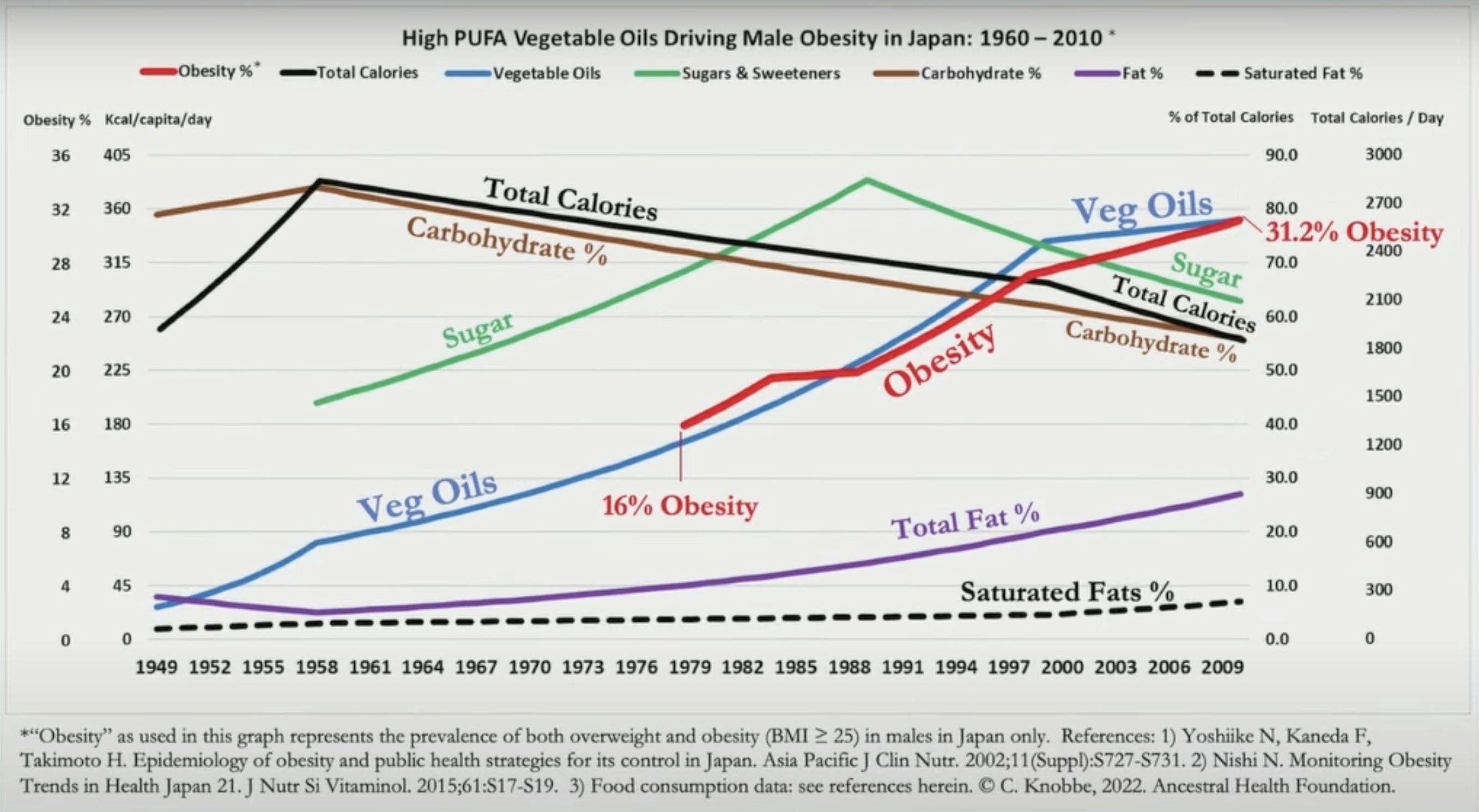
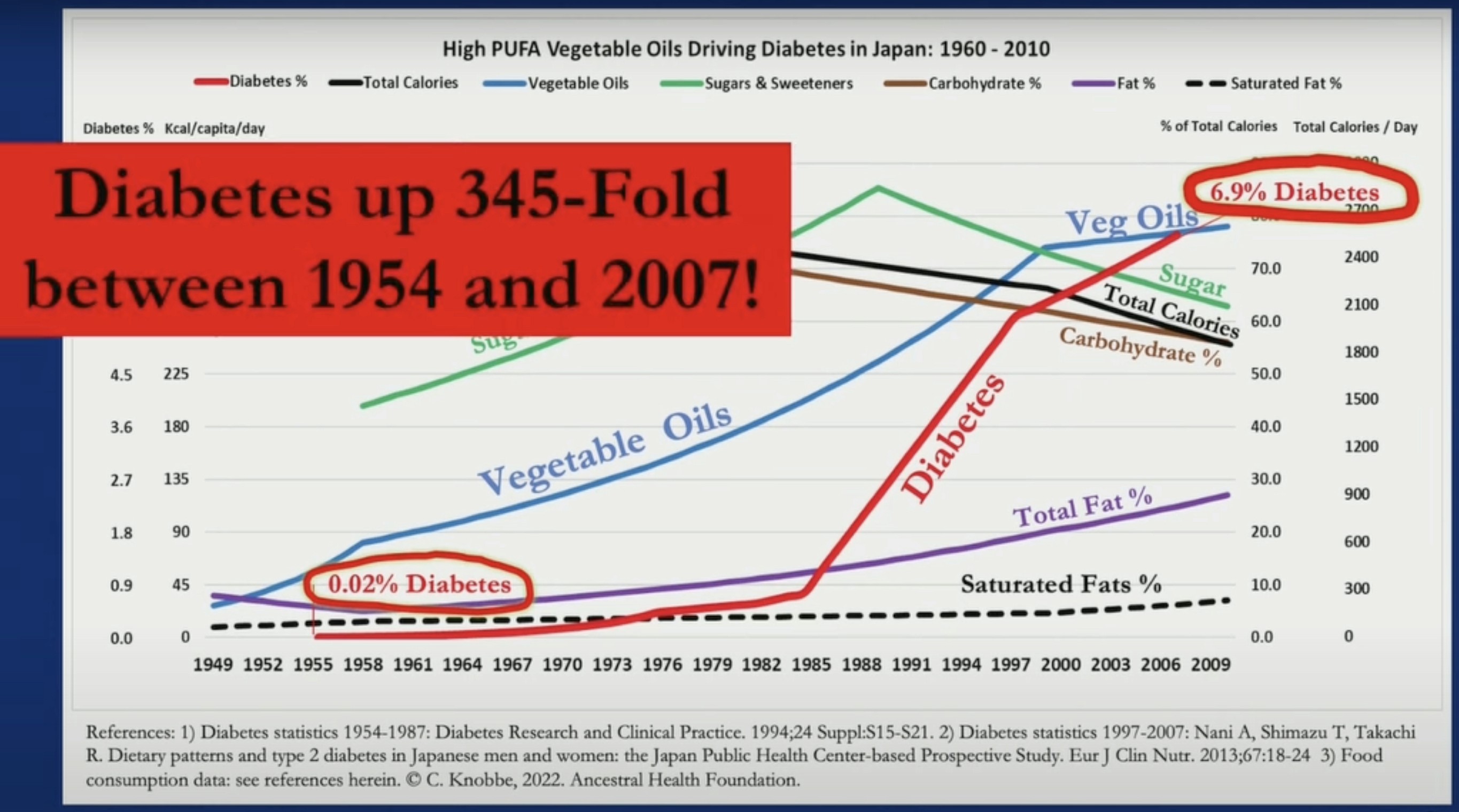
And it's not just Japan—similar trends are popping up all over the globe. The evidence seems to point to vegetable oils as a major player in our health woes.
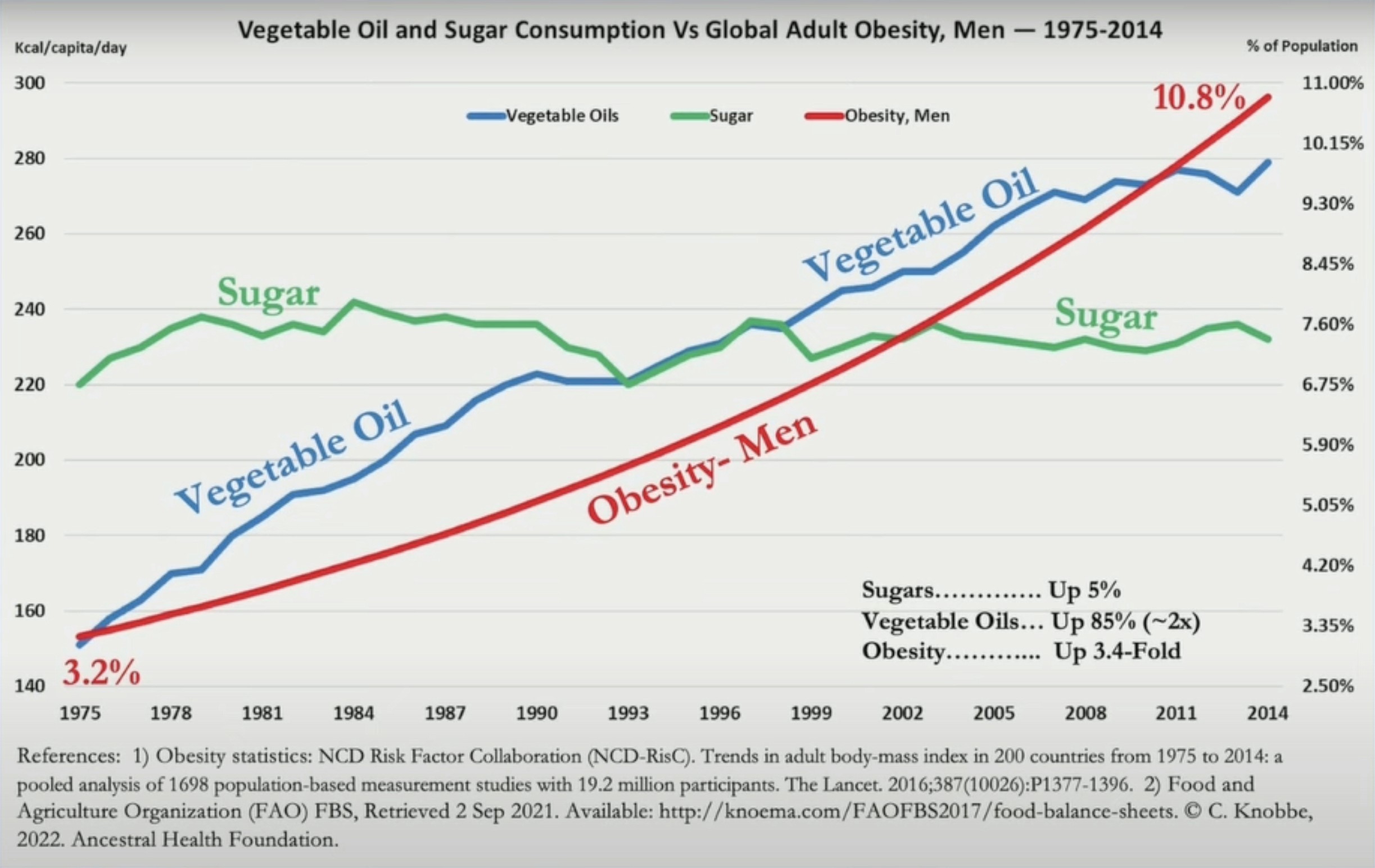
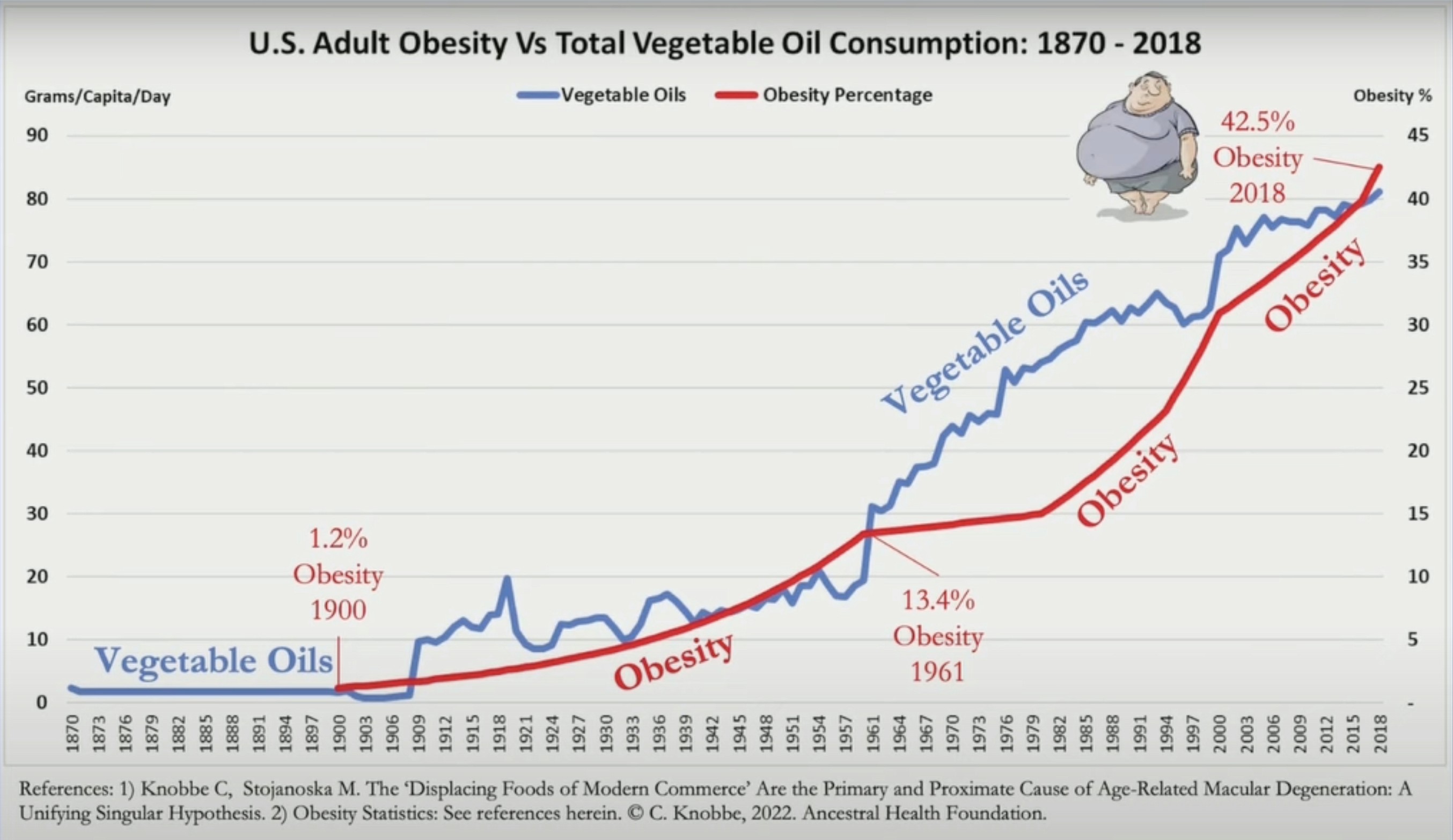
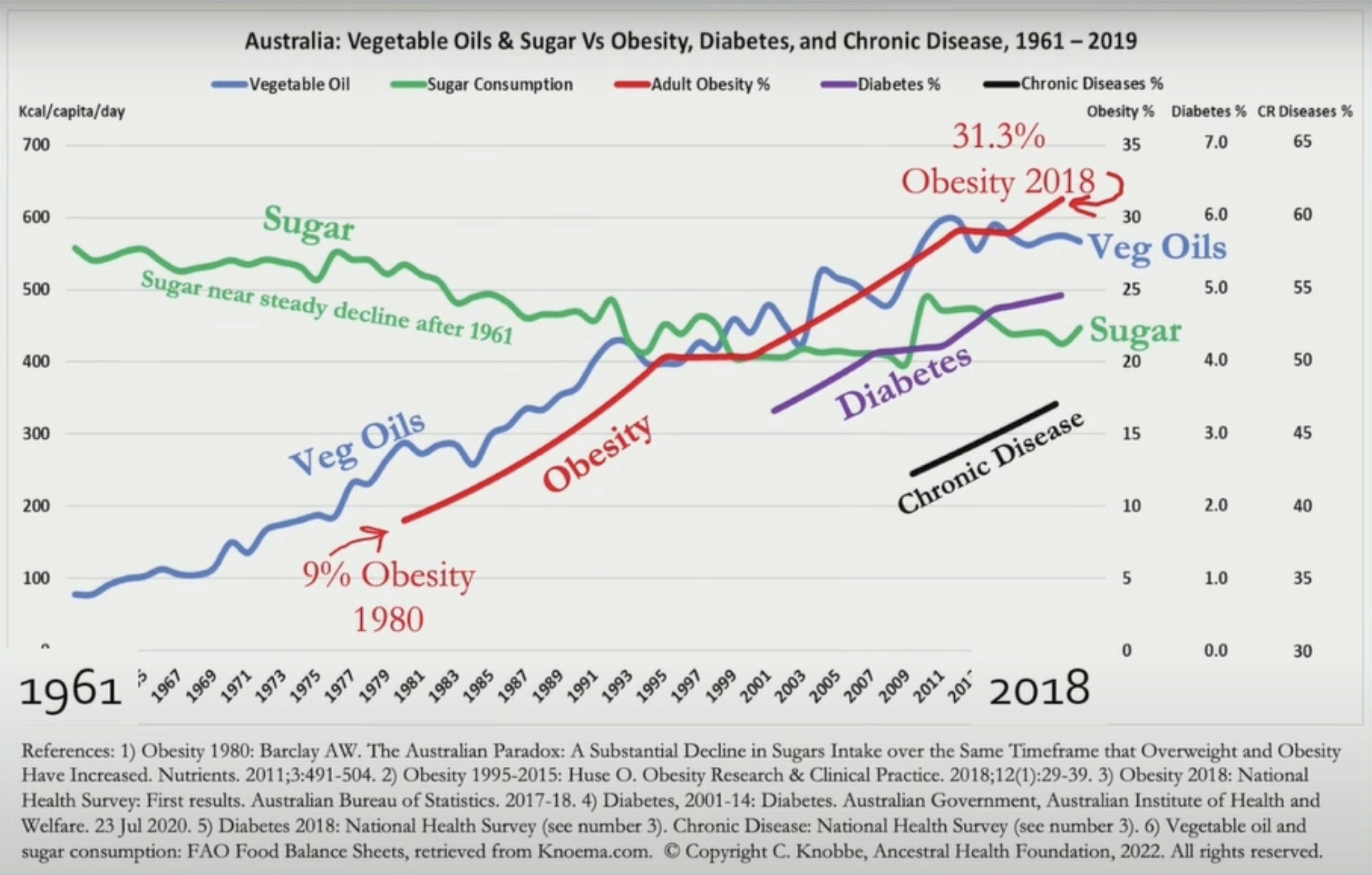
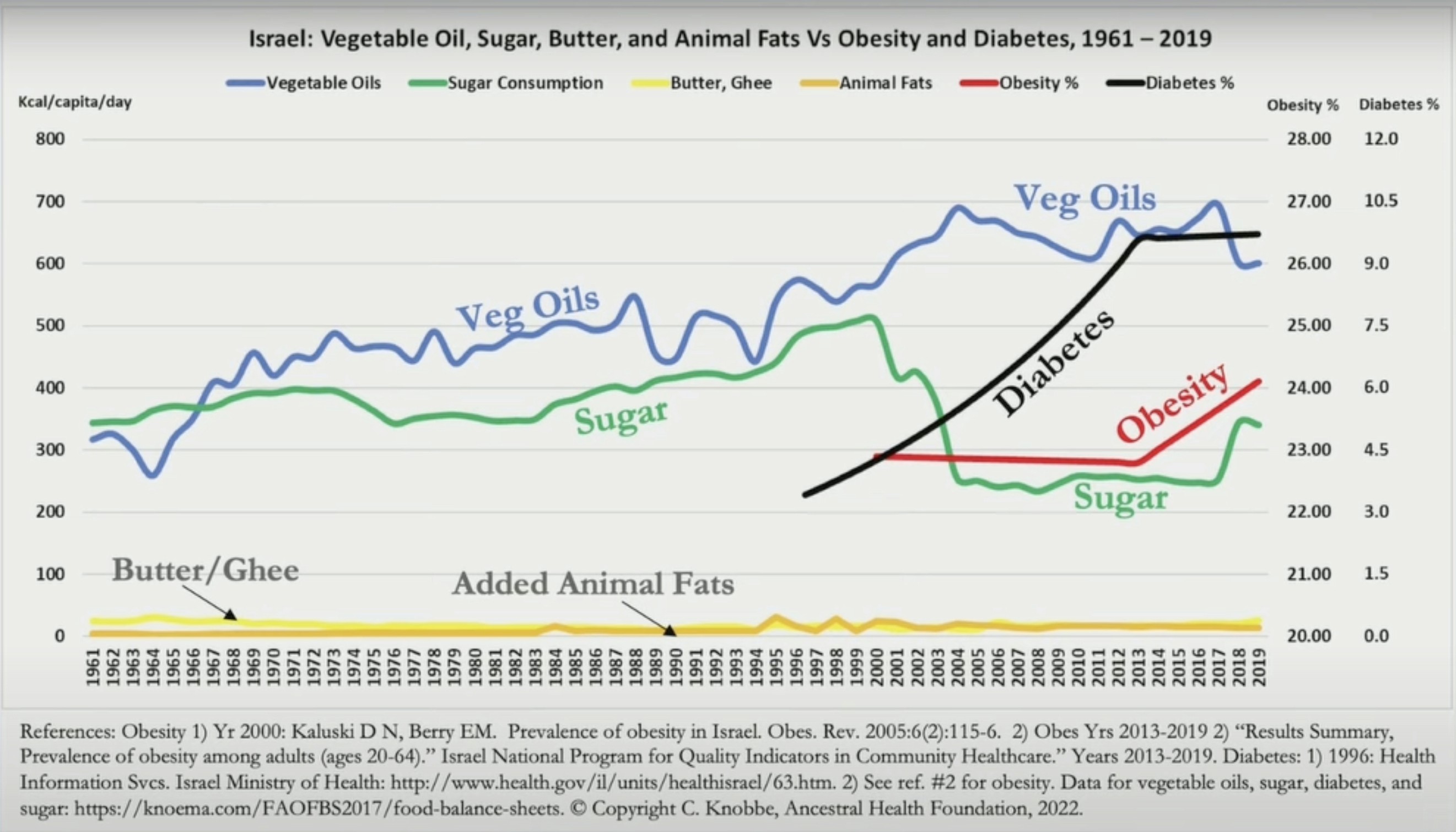
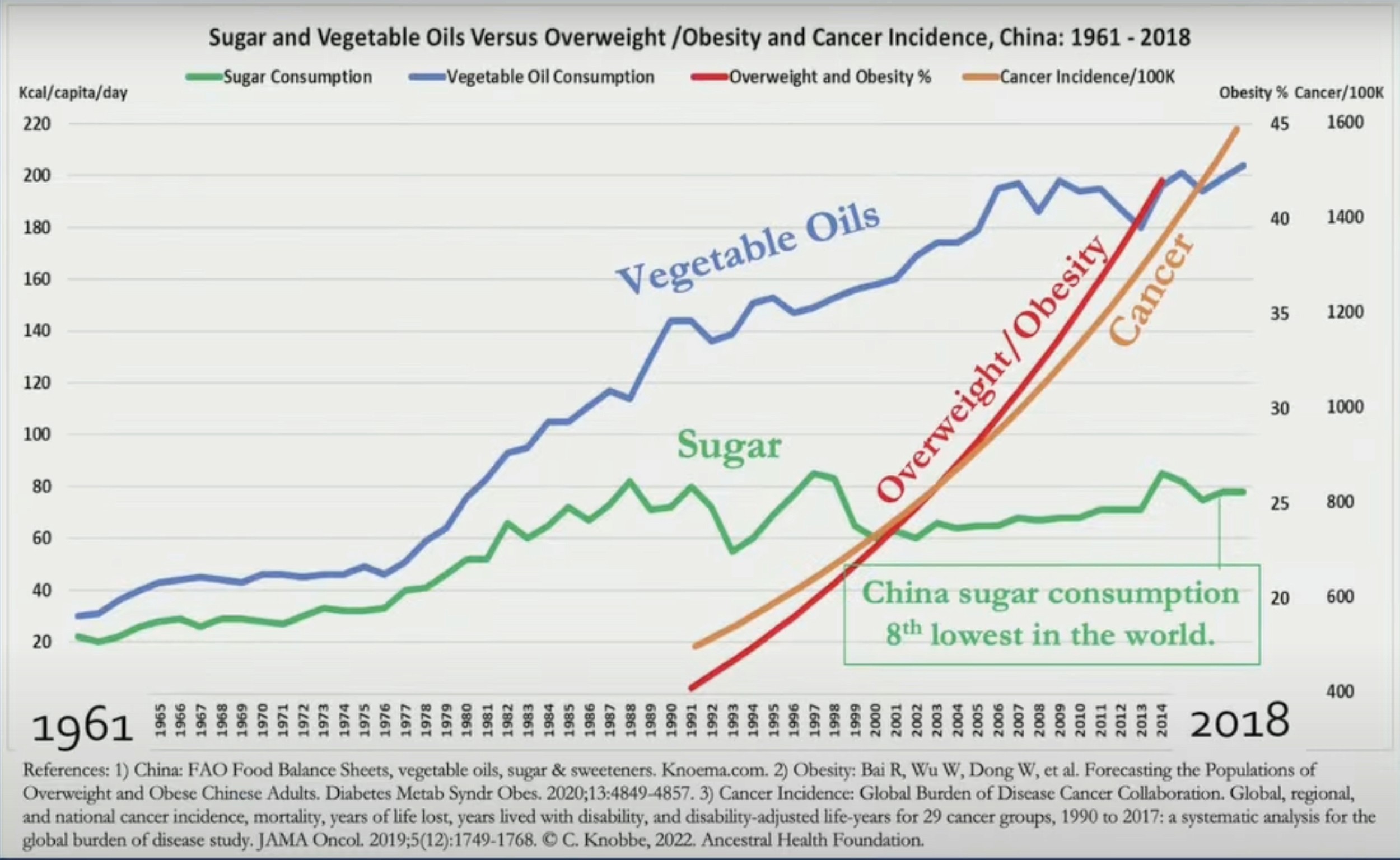
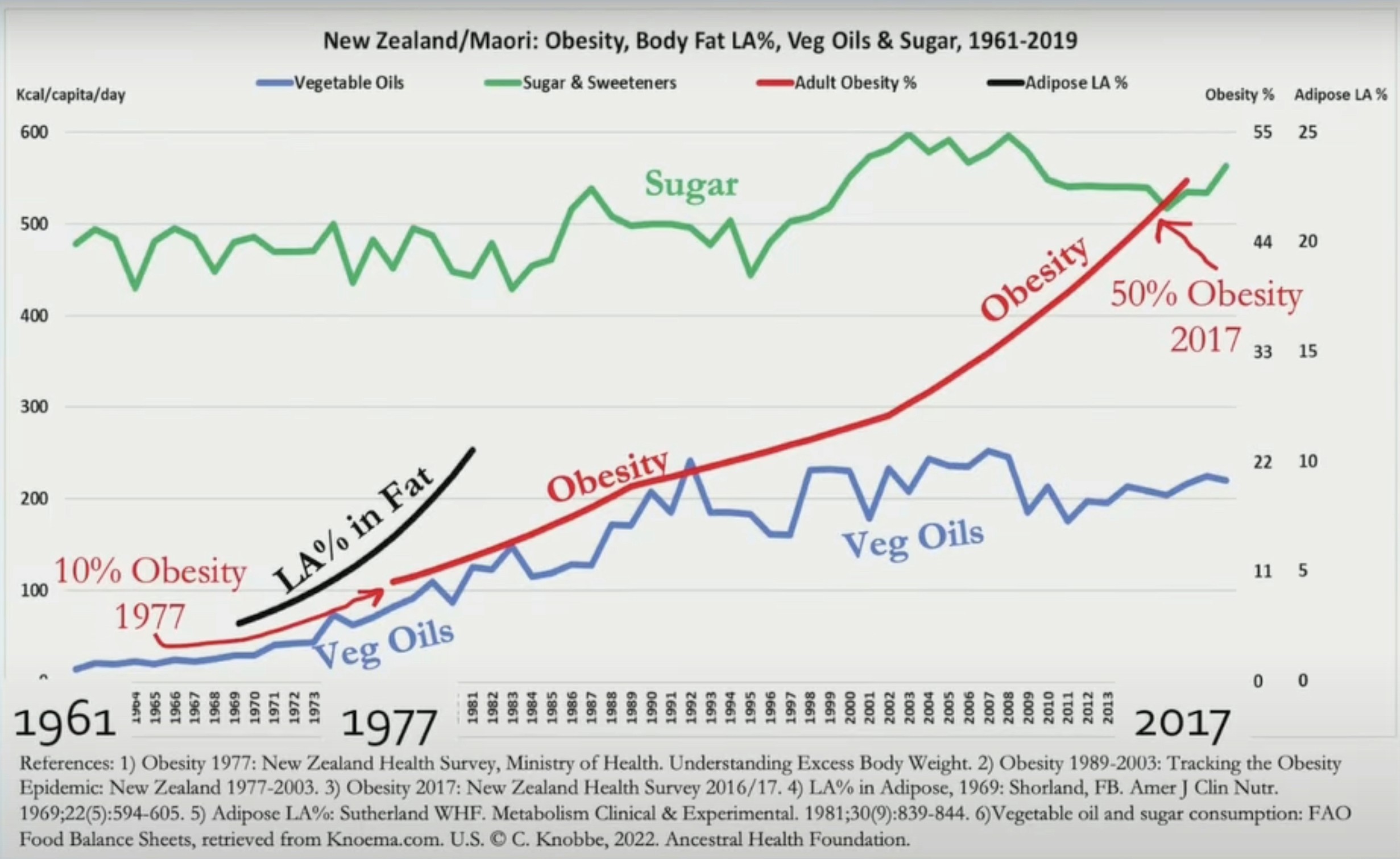
Now, I know what you might be thinking: correlation doesn't necessarily mean causation. And you're right! But when we apply the Bradford Hill Criteria, a method used to determine causation, the case against vegetable oils starts to look pretty solid.
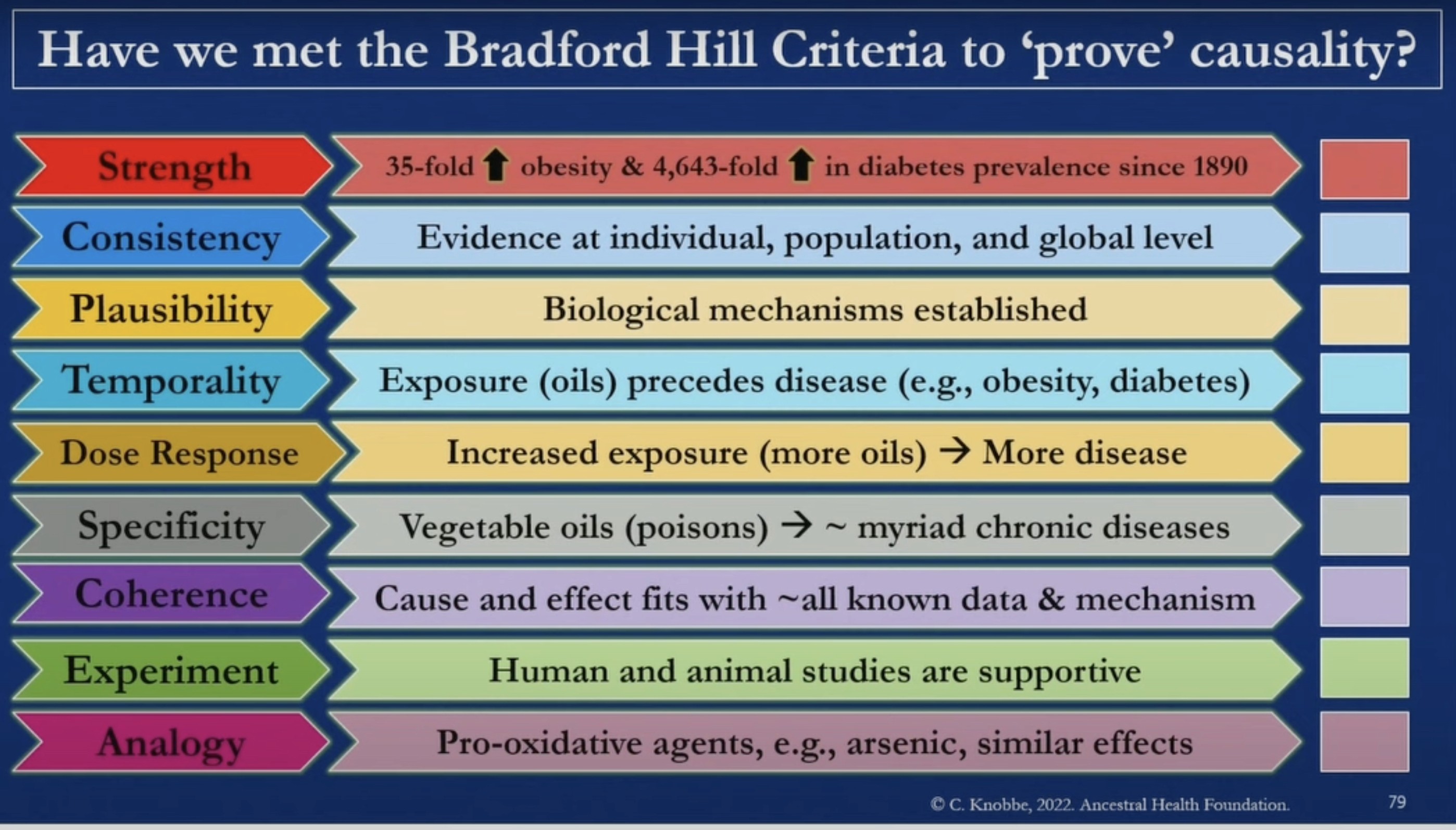
But let's get down to the nitty-gritty: how exactly do these oils wreak havoc on our bodies? Well, it's a multi-faceted issue. For starters, they mess with our mitochondria—the powerhouses of our cells—hindering our energy production. Then there's the inflammation they cause, gumming up our blood vessels and putting our hearts at risk. And let's not forget about the laundry list of toxins they introduce into our bodies, fueling everything from cancer to Alzheimer's.
But perhaps most insidious of all is the way these oils infiltrate our brains, messing with our hunger signals and making us prone to overeating, even when our stomachs are full. It's a downright diabolical scheme.
So, there you have it: a simplified rundown of how vegetable oils might be sabotaging our well-being. But hey, don't just take my word for it—dive into Dr. Knobbe's book for a deeper dive into the issue.
As I wrap up, I can't help but long for the simpler days of childhood, when everything seemed so black and white. Nowadays, it feels like we're constantly navigating a maze of misinformation and mixed messages. But armed with knowledge, we can start to untangle the mess and pave a healthier path forward. Stay tuned for my next article, where we'll delve deeper into how we got into this metabolic mess in the first place, and how we can chart a better course ahead.
Sources: Unless otherwise noted, all data in this article comes from "The Ancestral Diet Revolution" and Dr. Chris Knobbe's presentation on obesity and diabetes.
A Carnivore Journey: How Letting Go of Carbs Opened New Doors
Nutritional Myths and Nuclear Risks: The Parallel Stories of Regulatory Capture
Silencing Dissent: How Ancel Keys' Hypothesis Dominated Nutrition Science
Ancel Keys and the Diet-Heart Hypothesis: A Deep Dive into Flawed Science
Unmasking the Villain: Ancel Keys and the War on Saturated Fat
From Eisenhower to Endo: The Evolution of Heart Health Myths





